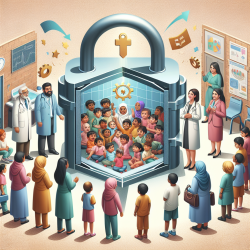As a speech-language pathologist, understanding the nuances of mathematical learning disabilities (MLD) is crucial for tailoring effective interventions. The research article "Mathematical (Dis)abilities Within the Opportunity-Propensity Model: The Choice of Math Test Matters" by Baten and Desoete provides valuable insights into how different factors influence mathematical abilities and disabilities in children. Here, we break down the key findings and discuss practical applications for improving educational outcomes.
Understanding the Opportunity-Propensity Model
The Opportunity-Propensity (O-P) Model, developed by Byrnes and Miller, differentiates between opportunity (O) and propensity (P) factors to explain individual differences in learning outcomes. Antecedent (A) factors, such as socioeconomic status (SES) and parental aspirations, influence both O and P factors. O factors include the learning environment and instructional quality, while P factors encompass cognitive and non-cognitive traits like intelligence and motivation.
Key Findings from the Study
- Parental Aspirations: High parental aspirations significantly predict better fact retrieval speed in children without MLD, mediated by the child's self-perceived competence.
- Teacher Experience: More experienced teachers positively impact children's mathematical abilities, highlighting the importance of instructional quality over quantity.
- Propensity Factors: Intelligence and self-perceived competence are strong predictors of both fact retrieval speed and procedural accuracy, especially in typically developing children.
- Differences in MLD: Children with MLD showed lower levels of autonomous motivation, self-esteem, and self-perceived competence, and higher sensitivity to rewards (BAS) compared to their typically developing peers.
Practical Applications
To improve mathematical outcomes for children, especially those with MLD, consider the following strategies:
- Parental Engagement: Encourage parents to set high, yet realistic, aspirations for their children's mathematical achievements. Provide resources and training to help parents support their children's learning at home.
- Teacher Training: Invest in professional development for teachers to enhance their instructional strategies and adapt their teaching methods to meet the diverse needs of students.
- Holistic Assessments: Use comprehensive assessments that include cognitive and non-cognitive factors to identify areas of strength and weakness in each child. Tailor interventions to address specific needs.
- Positive Reinforcement: Implement reward-based systems to motivate children with MLD. Focus on small, achievable goals to build confidence and competence over time.
By integrating these strategies, practitioners can create a supportive and effective learning environment that addresses the unique needs of each child. For a deeper understanding of the research, you can read the original research paper Mathematical (Dis)abilities Within the Opportunity-Propensity Model: The Choice of Math Test Matters.










